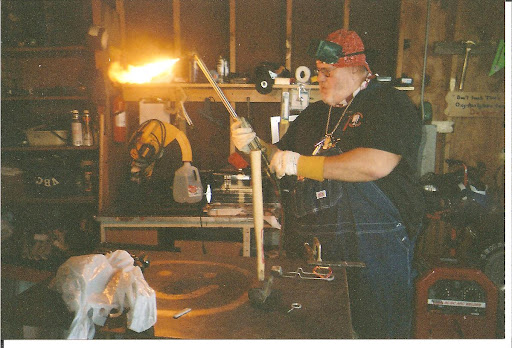I knew this before, but needed to refresh my own mind, and share it with others.
Tom
Ask the AKC Animal Behaviorist - How Do I Make My Puppy Stop Biting?
Kiwi NZ, Flickr
I've just adopted a 6-month-old puppy named Max from a shelter. I'm starting from scratch with his training, but unlike the last dog I adopted, Max likes to bite. He will nip during playtime, and he really bites when someone does something he doesn't like. He hasn't drawn blood yet, but I worry about what will happen when he gets older and bigger. How can I teach him to not bite?
It's hard to believe how much those needle-like tiny teeth can hurt when a rambunctious puppy nips you -- and of course the injury potential from dog bites increases as the dog gets older. You are right to be concerned. Let me help by explaining a bit about puppy socialization and offer you first steps to take to curb Max's biting ways.
One of the most important lessons a puppy learns from his mother is how to to control the intensity of a bite. This is called bite inhibition and in the litter, if the puppies bite while nursing, the dam (mother) will nip them or stand up and walk away, taking the breakfast buffet with her.
The dam isn't the only one who teaches a puppy not to bite. When puppies are playing with their siblings, if a puppy gets wound up and bites too hard, the sibling will jump up and yelp. She may leave the game as if to say, "Don't do that! That hurts!" The puppy soon learns if he wants the fun game to continue, he cannot bite too hard.
Now it's your turn. When Max bites, loudly say, "Ouch!" This lets him know that biting is not okay. Don't jerk your hand away if he has his teeth on you because this could tear your skin. Instead show that just as with a puppy's mom and siblings would do, you are going to retreat from the game if he bites. Behaviorally, this is a timeout from what he wants -- time and attention from you.
During your play sessions, work on teaching Max to respond to the word "easy" as you say it quietly and gently. You can give him some food rewards for gentle play. Keep in mind that while nipping a person is not acceptable, puppies do need to chew as a part of the teething process. Make sure Max has access to safe chewy toys.
It's great that you are working on training Max. If you aren't in one already, you might consider a basic obedience class. You'll be able to learn more tips from the instructor, and put Max on the road to being well socialized. A well-socialized, well-trained adult dog usually doesn't bite -- which makes for a happier and safer situation for everyone. And it sounds like you are heading in the right direction. Check out the AKC S.T.A.R. Puppy Program or other training programs in your area.
Do you have an animal behavior question for Dr. Burch? E-mail your questions to mary@pawnation.com. If you have questions or concerns about your pet's health, you should consult your veterinarian as soon as possible. Unfortunately, Paw Nation is not staffed to address individual questions about pet health, and we want your pet to stay healthy!






No comments:
Post a Comment